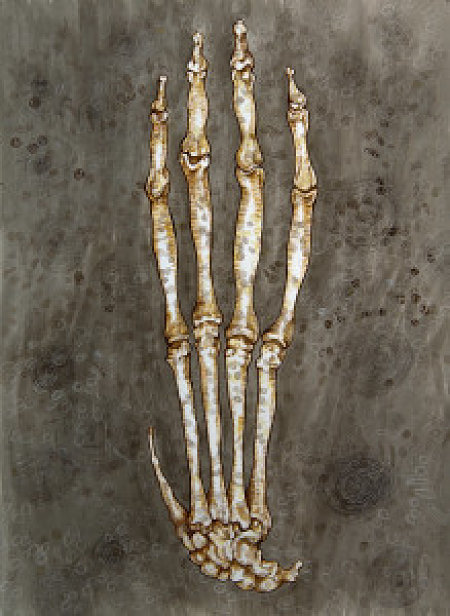
The Northern Wheatear
Of bird-song in the field of sumac and felled elders,
Or of a fox snake, slow to awake, slicing slowly
Through young grass, under the shadow of a red-tail.
And memory? It becomes as fragile as the furrows
Of snow mapped by the harried seed-hunting of field mice,
As brittle as the frozen limbs of hackberries
That will succumb to February’s wind and ice.
And although it seems Brueghel himself has laid
Down veins of white against these trunks and limbs,
It means little to a winter whose incessant winds gouge
Out the rivulets and crevices of bole and branch
Sending garments of crystal into the hard air,
Frozen skeins to undergird the bruised snow cloud.
And so in February, we look for our
Intercessors to preserve us from winter—
Such as this wheatear—old-world Arctic dweller,
Out of range but here on the frozen lip of the abandoned
Quarry pond sending out her emollient song
From the glazed, black tips of the hornbeam.
Why she sings in winter I will never know
But in such winters what does one need of knowledge?
Little more than this, I suppose: that long after
The wheatear has gone, her song will linger on,
Coaxing out lead plant, milk vetch and wild onion,
Joe-pye, iron weed, hawksbeard, and yarrow,
Laying out memory as fragile and delicate
As Brueghel’s black limbs and white snow.
